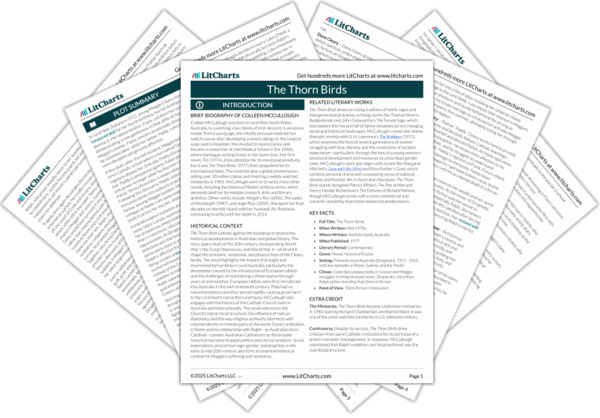Ralph’s encounter with Meggie begins as an act of comfort but quickly spirals into a moment of dangerous intimacy. Finding her alone and in shock, his instinct is to protect and console her, but this tenderness transforms into something more. The kiss is an impulsive betrayal of his role as a priest, and Meggie’s eager response reveals a longing that has always simmered beneath their connection. Her gentle care for his injury becomes a pretext for physical closeness, turning comfort into desire. When Ralph briefly surrenders to passion, his loss of control is a collision between his emotional dependence on Meggie and his priestly vows.
